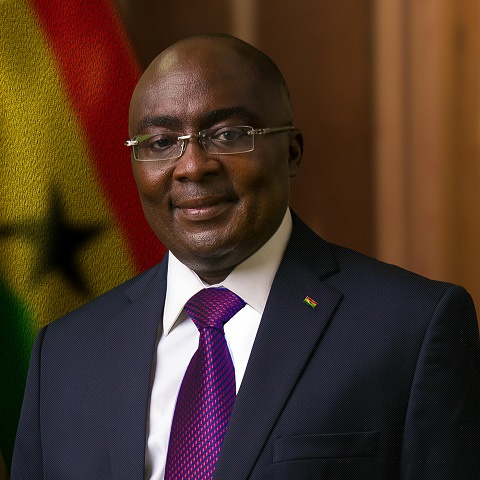Vice President Dr. Mahamudu Bawumia has stressed that government’s prudent management of the economy has reduced the rate of growth of the country’s debt stock.
He argues that even though the debt stock has grown in nominal terms, a careful assessment of the rate of increase shows a slow down in percentage terms compared to the previous administration under former President John Mahama.
He stated for example that the growth rate has decreased by more than half since the Nana Akufo-Addo government assumed power in 2017.
“We have managed Ghana’s debt extremely well. When you look at the rate of the debt stock, from 2008 to 2012, the rate of increase was 267%. From 2012 to 2016, the rate of increase was 243%. From 2016 to 2019 the rate of increase is 76 percent. So, the rate of increase has come down significantly” Dr. Bawumia said in an interview on Asempa FM’s late afternoon programme ‘Ekosii Sen’.
Currently, Ghana’s total debt stock stands at GHS 263.1 billion representing 68.3 percent of the GDP. The total public debt stock in 2016 stood at GHC122.3 billion .
Dr. Bawumia pointed out that the reduction in interest rates is a manifestation of how the Ministry of Finance and Bank of Ghana have collaborated to extend the maturity period of Ghana’s debt, giving government some fiscal space to operate.
“ When you are in doubt you always look at the fundamentals. If your debt rate is growing, it will reflect in interest rate. Under NDC we saw interest rates going up. We saw exchange rate depreciation. We saw inflation going up, “he said, adding that we have elongated the yield curve”.
Citing some reasons for the increase in the debt stock Dr. Bawumia said the energy sector contracts signed by the previous government left a debt of almost one-billion-dollars on government every year for power not produced.
He added that the financial sector clean undertaken by government was a necessary move that saved the funds of 4.6 million depositors even though it cost government GHS21 billion .
On the exchange rate front Dr. Bawumia said the 2 percent depreciation of the cedi from the beginning of the year to August supports the assertion that the economic fundamentals are strong.
Reacting to a question of the Cedi surviving on the fact that there was a decrease in trade hence low demand for the dollar due to COVID-19, Dr. Bawumia said a peer review of currencies on the African continent showed that the cedi out performed it counterparts in relation to the dollar.
August 2020 Flash Note of the African Markets Revealed report
The Ghana Cedi performed better than a number of currencies across the African continent in the face of the COVID-19 pandemic.
This was reported in the August 2020 Flash Note of the African Markets Revealed (AMR) report released by the Standard Bank.
According to the report, the performance of the local currency could be attributed to a combination of a diversified export base and reduced import activity among others.
The report further noted that “the Ghana Cedi has only depreciated by 1.6% year-to-date compared to a 9.6% year-to-date depreciation, during the same period in 2019. The GHS has on average depreciated by around 10% against the USD on an annualised basis, in the last 5 years”.
The August Flash Note also applauded the central bank for putting in place measures that ensured that the local currency remained stable over the past few months.










